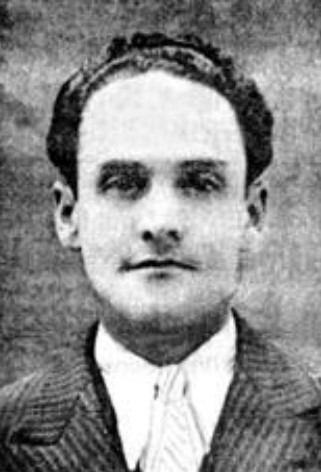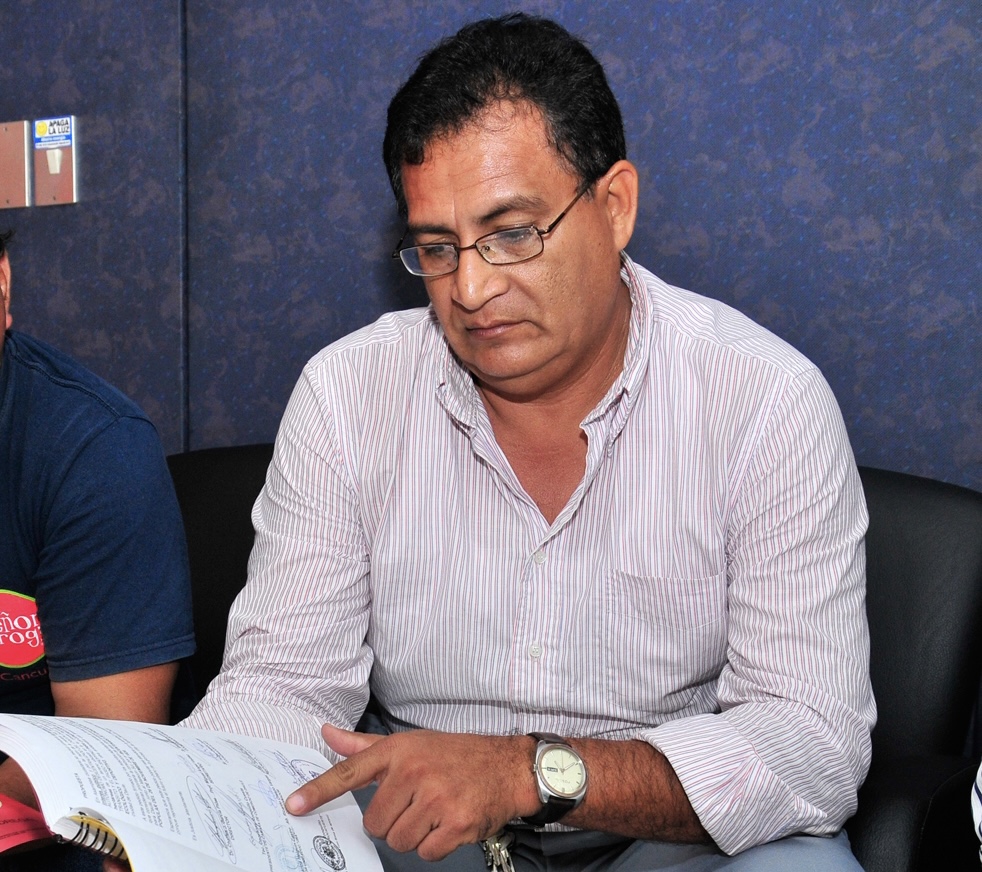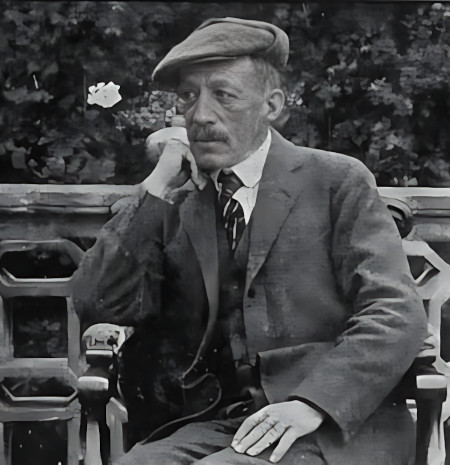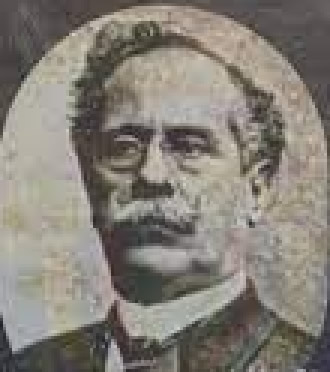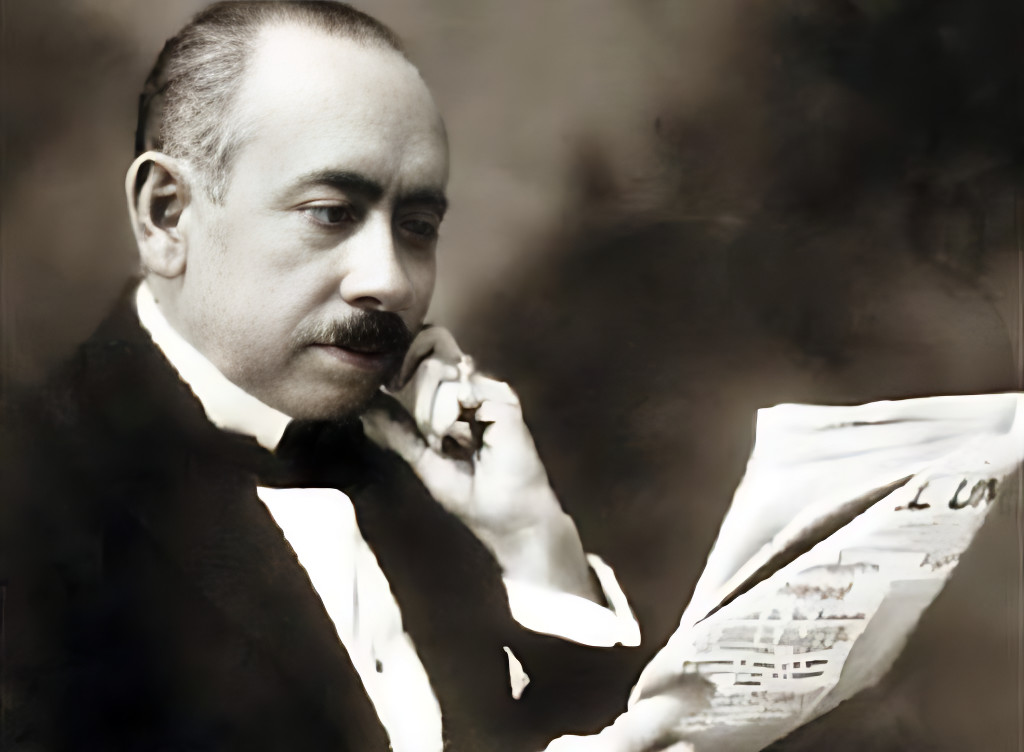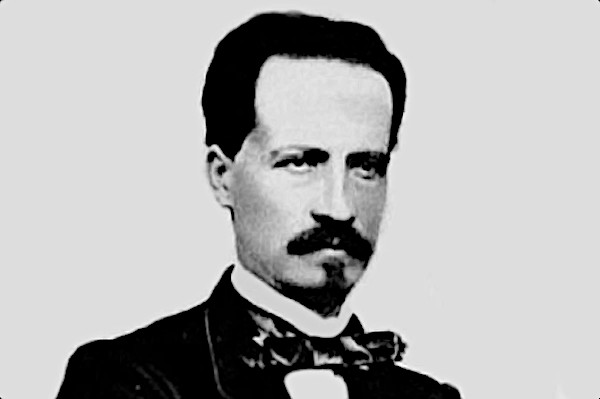César Ariosto Orellana (born circa early 1900s – unknown) was a co-founder of the César Borja Literary Society in Quito, Ecuador, alongside Jorge Carrera Andrade and Luis Aníbal Sánchez in January 1917. He attended Colegio Mejía, a high school in Quito, beginning in 1914, where he joined a budding literary circle that included future luminaries such as Carrera Andrade, later regarded as one of Ecuador’s foremost 20th-century poets, and Sánchez, an influential figure in Ecuadorian prose poetry of the modernismo era before his untimely death at 20. In April 1917, the society published the magazine La Idea, serving as its official organ, with Orellana as the magazine’s president and Carrera Andrade as treasurer. La Idea provided an early platform for poets such as Carrera Andrade, Sánchez, and Gonzalo Pozo, publishing works largely influenced by the modernismo movement as well as literary essays.
Continue reading “César Ariosto Orellana”Category: Publishers
Antonio Montalvo Viteri
Antonio Montalvo Viteri (Ambato, March 24, 1901 – Quito, July 9, 1953) was an Ecuadorian poet, literary critic, and cultural figure who played a key role in shaping early 20th-century Ecuadorian literature. He co-founded the influential newspaper El Espectador in 1921, published his first poetry collection Alba de Ensueño in 1922, and later helped establish the literary magazine El Cosmopolita in 1924. A member of several intellectual societies, he also co-founded the Grupo América in 1931. His 1947 biography of Eugenio Espejo is regarded as one of the best on the subject, cementing his reputation as both a poet and a biographer.
Continue reading “Antonio Montalvo Viteri”Rosaura Emelia Galarza
Rosaura Emelia Galarza Heyman (Guaranda, 1877 – February 13, 1966) was an Ecuadorian teacher, journalist, writer, and a pioneer in the field of women’s publishing. She was the founder of Ondina del Guayas, a monthly women’s magazine of literature and variety, which was edited in Guayaquil between 1907 and 1910. In addition, Galarza and her sister Celina María Galarza founded the magazine Flora in Quito in 1917, which became the most important women’s magazine published in Quito. Galarza also created other magazines, including Primavera in Riobamba, Hacia El Ideal and Álbum Bolivarense in Guaranda. Along with Zoila Ugarte de Landívar, Victoria Vásconez Cuvi, and María Angélica Idrobo, all teachers at the Liceo Fernández Madrid, Galarza was a founder and director of the magazine Alas in 1934. Galarza left behind a legacy of promoting women’s education and empowerment through her writing and activism.
Continue reading “Rosaura Emelia Galarza”Charles J. García Plúas
Dr. Charles J. García Plúas (Daule, 1964 – April 5, 2020) was an Ecuadorian writer, editor, biographer, historian, professor, researcher, and cultural promoter. He was a Language and Spanish professor with a doctorate in Education Sciences. He belonged to various cultural organizations in Ecuador. He authored over twenty books that narrate the history of towns settled on the banks of the Daule River, including Balzar, Colimes, Santa Lucía and others. He served as the Subdirector of Culture and Education of the Municipality of the Daule canton. In 2020, the Guayas chapter of the House of Ecuadorian Culture named a virtual festival in his honor. In 2021, the new Municipal Cultural Center (Centro Municipal de Cultura) of Daule, a three-story building which will house a museum, library, and more, was named “Dr. Charles García Plúas.”
Continue reading “Charles J. García Plúas”Anacarsis Martínez
Anacarsis Martínez Holguín (Ambato, July 16, 1862 – Ambato, April 1930) was an Ecuadorian writer, satirist, journalist, and politician known for his liberal activism and pioneering efforts in Ecuador’s early wine industry. Born into a prominent family, he was influenced by European intellectual traditions and pursued his education with the Jesuits in Quito. Martínez co-founded the anarchist newspaper El Combate and later launched La Avispa, a satirical publication that sharply critiqued Ecuador’s political elite. Throughout his career, he held positions as Deputy and Governor of Tungurahua, and although he was offered ministerial posts, he declined them, preferring independence. His work extended to managing the family’s Catiglata vineyard, where he applied winemaking techniques he had studied in France. Martínez’s writings, including his satirical novel El desfalco, provided pointed commentary on Ecuadorian society, solidifying his legacy as a bold voice for liberalism in early 20th-century Ecuador.
Continue reading “Anacarsis Martínez”Francisco Martínez Aguirre
Dr. Francisco Martínez Aguirre (Baba, Ecuador, January 6, 1850 – February 8th 1917) was an Ecuadorian physician, medical professor, statesman, journalist, publisher, editor, caricaturist, and poet. He received his medical degree from the University of Pennsylvania in the United States in 1871, at the age of 21. During his time in the United States, he also became a Freemason. He held several high-level political positions in Ecuador’s government as well as high-level academic positions in Ecuadorian medical schools throughout his life. He worked as a professor at the Medical School of the Central University of Ecuador from 1878 until 1910. From 1898 and 1907 he served as Dean of the Faculty of Medicine of the University of Guayaquil. On November 7, 1885, he founded the satirical weekly “El Perico,” which called attention to issues of the time through poetry, political cartoons, and humor. The newspaper, whose motto was “Each bird cuts his own quill and proceeds,” quickly became popular, perhaps more so than any other newspaper had before. In 1886, for his role as the publisher/editor of “El Perico,” he was arrested and exiled to Peru. In his later years he became a close collaborator of President Eloy Alfaro. In the two critical years preceding President Eloy Alfaro’s murder (1910 and 1911) he was one of five ministers in Eloy Alfaro’s Cabinet, serving as Minister of Defense. After Eloy Alfaro’s murder, he went into voluntary exile in Chile from 1912-1915.
Continue reading “Francisco Martínez Aguirre”Miguel Ángel Granado Guarnizo
Miguel Ángel Granado Guarnizo (Guayaquil, 1895 – Guayaquil, 1955) was an Ecuadorian modernist poet, playwright, and literary critic. He began publishing poetry and literary critiques as early as 1912 and was a key figure in Ecuador’s early 20th-century literary scene, co-founding the influential El Telégrafo Literario (1913). He is best known for his play El Hermano Cándido (1919), his biographical and critical work Fisonomías (1914), and his collection of critical essays Horas de Luz (1917). Granado Guarnizo was part of a close-knit literary circle that included his friend, the poet Medardo Ángel Silva. His career was tragically cut short in 1926 when he was diagnosed with a mental illness, leading to his long-term institutionalization until his death. He was the brother of the poet Carlos F. Granado Guarnizo.
Continue reading “Miguel Ángel Granado Guarnizo”Ismael Pérez Pazmiño
Ismael Pérez Pazmiño (Machala, June 30, 1876 – Los Angeles, November 1, 1944) was founder of El Universo newspaper of Guayaquil, Ecuador, and former senator of El Oro province. He published the first edition of El Universo on September 16, 1921. El Universo is still run by Pérez Pazmiño’s descendants. Many educational institutions and streets bear his name in Ecuador. An important national poetry contest by El Universo also bears his name.
Continue reading “Ismael Pérez Pazmiño”Antonio Borrero y Cortázar
Antonio Borrero y Cortázar, born Antonio María Vicente Narciso Borrero y Cortázar (Cuenca, October 29, 1827 – Quito, October 9, 1911) was an Ecuadorian lawyer, politician, writer, and journalist who served as the President of Ecuador from 1875 to 1876. Known for his commitment to constitutionalism and civil liberties, Borrero was also an influential figure in Ecuadorian literature and journalism. He founded several newspapers, including La República and El Centinela, using them to advocate for political reform and decentralization. His notable literary works include a biography of Fray Vicente Solano and a refutation of a pro-García Moreno biography, reflecting his dedication to both intellectual and political life.
Continue reading “Antonio Borrero y Cortázar”
